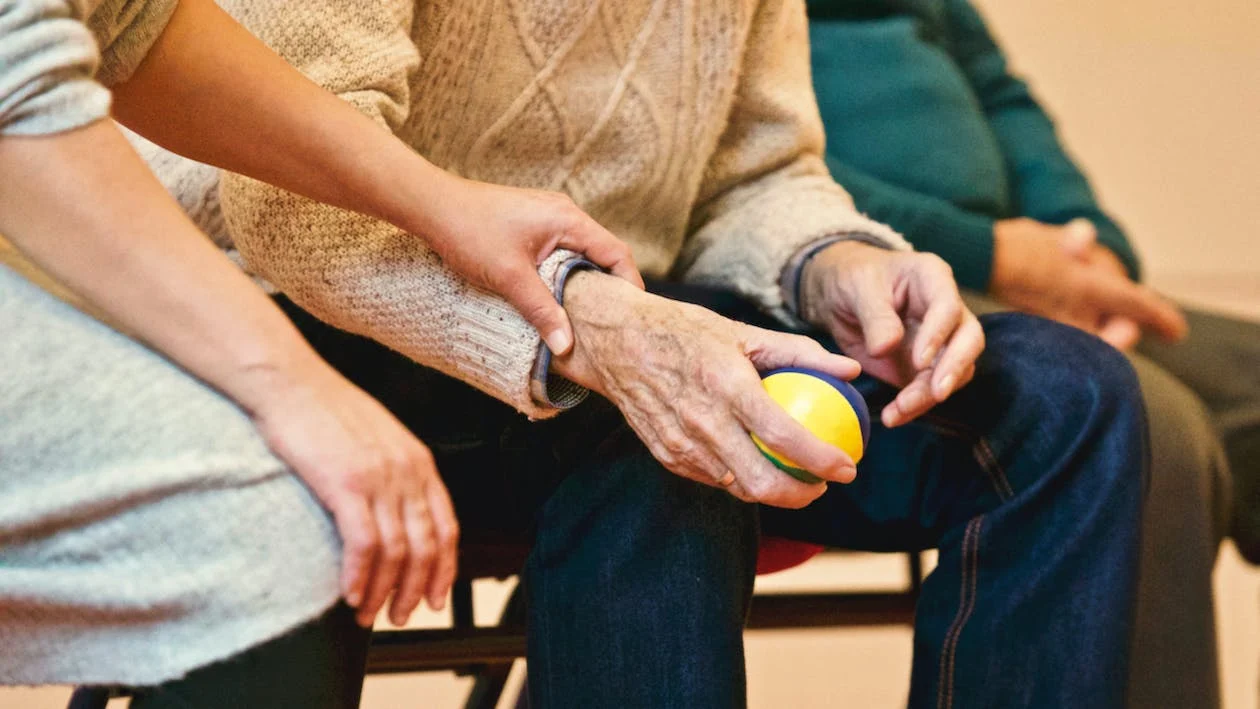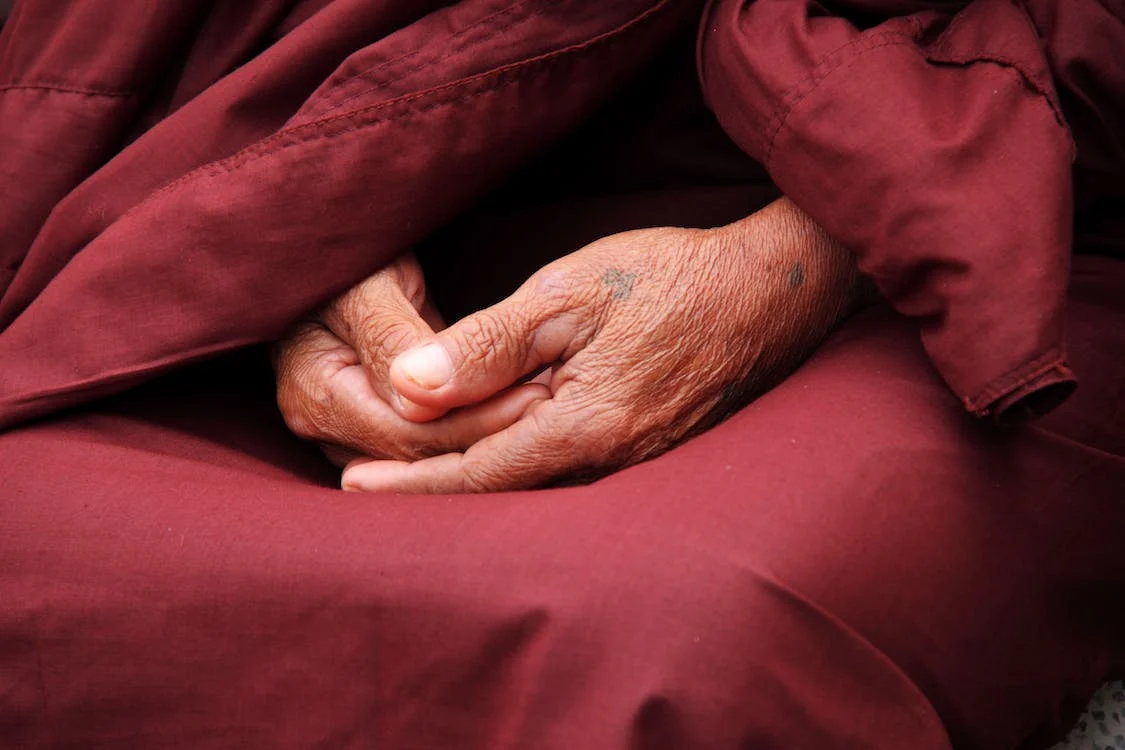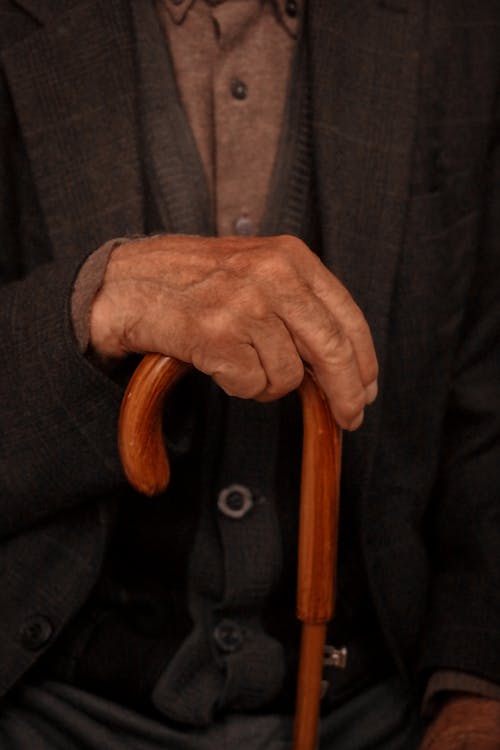Shaking can happen at any age. Some people may start to tremor as they age. Even though Parkinson’s disease and trembling are frequently confused, there are numerous other common reasons for shaking, including transient, harmless illnesses and the side effects of prescription medications. If you’re a senior patient who is wondering, “Why am I trembling? Follow along as we examine some of the factors contributing to tremors in senior populations. It’s crucial to keep in mind that only your doctor can diagnose your tremors and establish a treatment plan for you.
For a thorough explanation, continue reading to know the guide to selecting tools and equipment for the elderly with hand tremors or skip to the section that applies to your question.
Tremors, Shaking Hands, and Aging
Elderly populations may experience sudden, uncontrollable shaking as a result of minor problems that go away on their own or as a result of underlying disorders. Even while not all elderly people shake as they age, there is a greater chance that you may if movement problems run in your family. Age-related tremor is most likely a sign of neurodegeneration, despite the fact that study into this topic is currently ongoing.
Causes of Tremor and Shaking Hands in Elderly
What causes elderly people to shake their hands? Unfortunately, there are a lot of possible reasons for trembling and involuntary movement, making the answer to this issue difficult to pinpoint. Additionally, tremors can strike anyone at any age, making shakiness not solely a problem for the elderly. For instance, low blood sugar can cause your hands to start shaking if you haven’t eaten in a while.
This is merely one of the many causes of your shaking and tremors. We’ll look at some of the circumstances that are frequently connected to tremors and shaking in old age down below.
Essential Tremors
One of the most prevalent movement disorders, essential tremor affects around 5% of the world’s population. This disease, which can cause rhythmic, involuntary shaking of the hands, head, voice, chest, or legs, is particularly prevalent in people over 65. It has a negative effect on one’s quality of life, makes it challenging to carry out essential everyday functions like eating and drinking, and gets worse over time.
The symptoms can be managed with therapies and treatments even though there is no cure.
Parkinson’s Disease
People over 60 years old are more likely to get Parkinson’s disease. In fact, with its prevalence having doubled over the previous 25 years, it is one of the most prevalent causes of hand tremors in elderly populations.
Parkinson’s disease-related hand shaking is brought on by the loss of nerve cells in the brain, which also lowers life expectancy overall and worsens muscle control. More or less 80% of Parkinson’s sufferers uncontrollable movements.
Huntington’s Disease
The signs of Huntington’s disease appear between the ages of 30 and 50, and it is a genetic condition that shortens life expectancy and causes the brain to deteriorate. The condition is typically distinguished by uncontrollable movements of the arms, legs, head, face, and upper torso. Additionally, it impairs thinking and reasoning.
Multiple Sclerosis
A chronic autoimmune disease called multiple sclerosis (MS) affects the central nervous system, which is responsible for most of our essential bodily activities, including thinking, learning, moving, and feeling. In MS, the immune system targets the myelin covering our nerves, causing scar tissue to form. This injury obstructs the brain’s ability to communicate with the body, leading to numbness, stiffness, visual issues, shaky hands, and other symptoms.
MS can appear at any age, however, people between the ages of 20 and 40 are most frequently affected. If you’re wondering “Why are my hands trembling? If you think you may have MS, get in touch with a doctor every once, preferably a neurologist. While there is currently no cure for MS, you can manage your symptoms and flare-ups with medication and lifestyle adjustments.
Stroke
A clogged or ruptured artery causes a stroke, a sudden attack on the brain. It is a medical emergency that may result in brain damage, incapacity, or even death. A sudden headache, poor balance, fuzzy vision, confusion, and numbness are a few symptoms of a stroke.
Tremors, particularly shaking hands, can follow a stroke if the cerebellum or basal ganglia are damaged. Fortunately, this is a rare occurrence that usually goes away by itself. Within a year, 28% of individuals with post-stroke tremors see their shaking disappear, while 64% see it only partially.
Cerebral Palsy
The motor disorder cerebral palsy (CP) impairs movement and muscle tone. Although the intensity and variety of CP symptoms might vary from patient to patient, patients with CP frequently experience tremors, tight muscles, and overactive reflexes.
CP often manifests and is diagnosed before the age of 5, but it is occasionally possible to receive a diagnosis later in life when the symptoms worsen with age.
Caffeine Toxicity
If you consume too much caffeine, you may experience tremors. You may also have anxiety, restlessness, agitation, stomachaches, an irregular heartbeat, and insomnia in addition to tremors. Caffeine use causes the “fight or flight” hormone, adrenaline, to be released, which can cause trembling.
Pharmaceutical Side Effects
As a side effect, some prescription medications can cause tremors and trembling hands. The most typical ones consist of:
- Epinephrine and norepinephrine
- High blood pressure drugs
- Alcohol
- Antivirals
- Antibiotics
- Antidepressants
- Stimulants
- Mood stabilizers
- Immunosuppressants
- Asthma medication
- Seizure medication
- Cancer treatments
Overactive Thyroid
An overactive thyroid can show modest symptoms. Millions of people have an overactive thyroid gland, which causes your body to constantly be on overdrive. Your hands may tremble as a result of your overexcited nerves. Additionally, you can have a racing heart, weight loss, ravenous hunger, sweating, fatigue, and heat intolerance.
Alcohol Abuse or Withdrawal
Both alcohol withdrawal and excessive alcohol consumption can cause hand tremors. After your final drink, these tremors may start as soon as 10 hours later and linger for several weeks. This is only one of the many reasons why alcoholics in recovery should only cut back on their alcohol consumption with the help of a healthcare professional and addiction specialist. Medication can be provided by rehab and detox programs to help with tremors and other alcohol withdrawal symptoms.
Hypoglycemia
When your body is hypoglycemia, your muscles and nerves lack blood sugar, which is their primary source of energy. This may cause your hands to tremble. Because hypoglycemia causes the release of chemicals like adrenaline and norepinephrine, you may also experience symptoms like anxiety, hunger, perspiration, and other physical manifestations of stress.
Anxiety
Another factor contributing to elderly persons shaking is anxiety. Elderly family members may simply be having an anxiety attack if you see sudden, uncontrollable shaking rather than an underlying medical ailment.
Your muscles may twitch or shake as a result of your body being predisposed to react to danger when you’re anxious. Psychogenic tremors are another name for anxiety tremors.
Can Sudden Uncontrollable Shaking in the Elderly be Genetic?
Tremors can, unfortunately, be inherited genetically. In fact, genetic factors are considered to be responsible for 50% of all occurrences of essential tremor.
Researchers and scientists think that essential tremor is an autosomal dominant feature. You have a 50% chance of getting essential tremor if one of your parents has the illness due to an altered gene. Inherited essential tremor typically manifests earlier in life compared to other types.
Types of Tremors
The National Institute of Neurological Disorders and Stroke describes the various tremors that tremor patients may experience, ranging from brief trembling to chronic movement disorders.
Action Tremors
Essential tremor frequently coexists with action tremors. They are a group of tremors that are caused by the voluntary contraction of muscles, and they include postural tremor, isometric tremor, and kinetic tremor.
When a person is holding out their arms or in another position where a part of their body is defying gravity, postural tremor may occur. When people voluntarily grab for something or turn a key in a lock, kinetic tremor happens. When a muscle contracts voluntarily and without any other movement, such as when holding a book or weight, isometric tremor occurs.
Physiologic Tremors
There is physiologic tremor in everyone. However, because it’s a byproduct of typical human biological processes, you won’t typically detect it. Your heartbeat and blood circulation throughout your body cause your muscles to spontaneously pulse.
Enhanced Physiologic Tremors
An heightened physiological tremor is more obvious when compared to the regular tremor noticed in healthy people. It is typically a transient syndrome brought on by hypoglycemia, alcohol, or a pharmacological reaction rather than an illness. Once the cause is identified, it can be stopped.
Cerebellar Tremors
This tremor happens after an intentional motion, such as pressing a button. The shakiness is typically caused by damage to the brain following a stroke or by other medical conditions including multiple sclerosis or long-term drinking.
Psychogenic Tremors
Stress, anxiety, depression, or an underlying psychological condition like PTSD can cause psychogenic tremor. The tremor may affect all bodily parts, including the hands. When a person is focused on anything else, it may decrease during times of stress.
Parkinsonian Tremors
Even while trembling is a common sign of Parkinson’s disease, not everyone who has it does. Typically, one or both hands will exhibit the tremor while at rest. Parkinson’s disease patients can occasionally tremble while moving their limbs. The legs, face, or head might all exhibit shakiness. Even while the disease may begin on one side of the body, as it progresses, it may move to the other side as well.
Orthostatic Tremors
This tremor is extremely uncommon and is characterized by rapid shaking that is typically difficult to detect through simple observation. Orthostatic tremor sufferers occasionally experience imbalance or unsteadiness. There is no known cause.
How Does Shaking Affect Older Adults?
If you have tremors of any kind as an older adult, you are well aware of how annoying and inconvenient they may be. Not only do they make it difficult for you to carry out simple daily activities like eating, drinking, walking, and conversing, but they also have a bad effect on your mental health and leave you feeling depressed and incompetent. Overall, tremors and shaking lower your quality of life and threaten your autonomy and agency.
Can Elderly Tremors be Treated?
Depending on the type of tremor you experience, geriatric tremors can be challenging to manage, but there are several therapies available to successfully control your symptoms. It is necessary to collaborate with your healthcare physician to choose the ideal treatment or set of treatments for you, from dietary adjustments to a cutting-edge essential tremor therapy.
Lifestyle Changes
Making minor modifications to your way of life might have a major impact on tremor management.
Begin by changing your diet. How can you improve the balance of your diet? Do you need to give up anything in order to improve your health and wellbeing? Keep your intake of caffeine, nicotine, and alcohol to a minimal because they can worsen tremor symptoms.
Remember to look after your mind as well as your body when caring for it. Tremors can become worse due to stress and anxiety. What do you do to help you relax when you’re under pressure? To reduce undesirable thoughts, try relaxing activities like deep breathing and meditation. Also, try to stay away from stressful circumstances as much as you can.
Medication
When it comes to reducing the symptoms of essential tremor, medication can be highly beneficial. Most frequently, beta-blockers, anticonvulsants, tranquilizers, and botox are prescribed by doctors to lessen the frequency and intensity of tremors.
However, not everyone responds well to medicine, so it could take some trial and error before you discover one that does. For instance, based on how your body responds to the drug that is prescribed, you can experience serious adverse effects or develop a tolerance very rapidly.
Surgery
If you have severe, incapacitating tremors or if other therapies are ineffective for you, surgery may be the only option. There are currently two surgical methods available to treat essential tremor.
Using a neurostimulation device positioned behind the collarbone, deep brain stimulation (DBS) sends electrical pulses to specific regions of the brain. This lessens tremor symptoms while promoting more normal brain activity.
Focused Ultrasound uses magnetic resonance imaging (MRI) to precisely locate the part of the brain where tremors begin. Then, it employs powerful sound waves with just the right amount of energy to hit the target.
For the most part, you must fulfill certain requirements in order to be qualified for these surgeries. Like any procedures, they include dangers and a healing process.
Cala TAPS Therapy
You can use a cutting-edge essential tremor therapy in addition to modifying your lifestyle, taking medicine, and having surgery to lessen your symptoms.
The only non-invasive, drug-free treatment for essential tremor is called cala TAPS therapy. The wearable Cala device is safe, efficient, and FDA-cleared since it uses electrical stimulation, or neuromodulation, to target the brain’s tremor network. It offers quick 40-minute sessions of brief hand tremor alleviation and is matched to each patient’s particular brain signal pattern.
Using the Cala gadget, a lot of patients saw their tremors significantly decrease. Most patients report tremor alleviation that lasts for more than an hour.
Dealing with Tremor in Old Age: Cala TAPS Therapy
Visit your healthcare physician for an accurate diagnosis and treatment if you have tremor concerns or are experiencing a sudden tremor. There is a cutting-edge therapy that can help manage symptoms of more widespread movement disorders like essential tremor. Each person has a different tremor. The Cala TAPS Therapy uses a wristband that is customized to your specific shaking pattern to provide a non-invasive method of managing tremor.
Despite the fact that there is no known cure for essential tremor, there are numerous therapies and treatments you may use to manage symptoms and live out your golden years without stress.
Conclusion
Many older people endure hand tremors, which have an effect on their everyday life and general well-being. The natural aging process, and neurological conditions as those mentioned above are some of the factors that can cause these tremors. For a proper diagnosis and course of treatment, it is essential to understand the reasons for older patients’ hand tremors. Healthcare providers can give focused interventions and support to enhance the quality of life for older persons affected by hand tremors by being aware of these issues.





